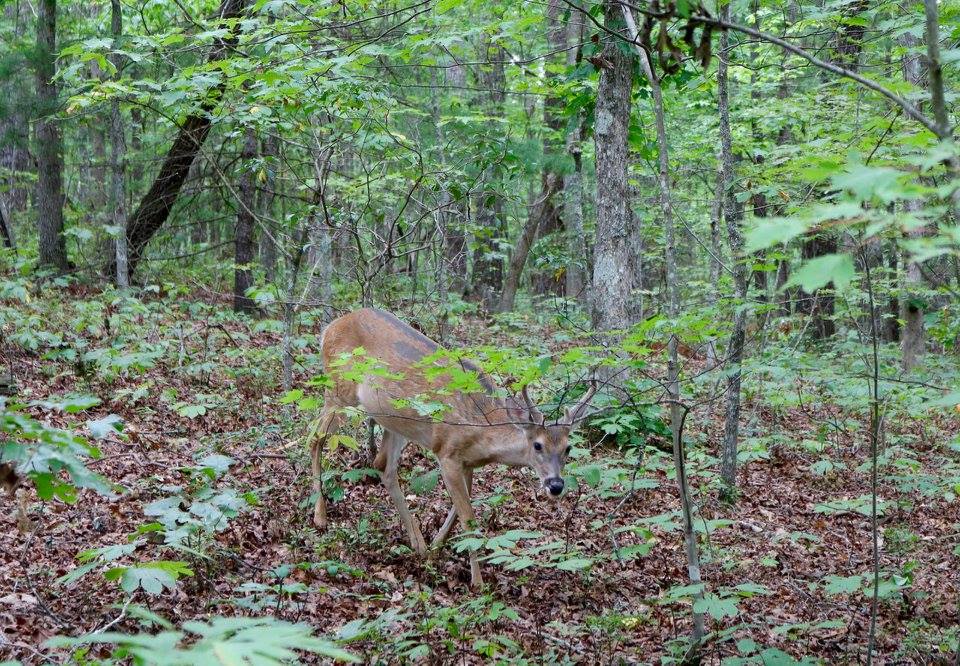Press release from the N.C. Wildlife Resources Commission:
After receiving multiple reports of dead, dying or sick deer in the Southern Appalachians, the N.C. Wildlife Resources Commission said that hunters may see dead deer this hunting season but that the recent outbreak of hemorrhagic disease in white-tailed deer is cyclic and the population will rebound.
Citizens should report dead or obviously sick looking deer to their local district biologist to help monitor the impact of the disease.
Hemorrhagic disease is a common disease of deer caused by two types of viruses — one producing blue tongue and the other producing epizootic hemorrhagic disease. Tests of infected animals indicate that epizootic hemorrhagic disease appears to be the responsible virus for this year’s outbreak.
HD tends to occur in North Carolina every year, although with varying degrees of severity and distribution. The disease typically dies off after the first frost. The counties in the Southern Appalachians with moderate HD activity this year are Swain, Clay, Cherokee, Macon and Transylvania counties.
Transported by a biting midge or gnat, the HD viruses enter deer through insect bites. Common symptoms of sick animals include emaciation, loss of motor control, fever, lameness, and swelling of the neck and head. Feverish deer often seek relief near cool bodies of water, resulting in a higher frequency of dead deer near water than on adjacent uplands. Examinations of dead deer usually reveal ulcerations on the tongue, dental pad and roof of the mouth. The mouth and tongue also may be bluish and the skin and other soft tissues may be flush or reddish.
HD has no known human health implications, but it is one of the most significant endemic viral diseases of white-tailed deer in the southeastern U.S. There is no evidence that it can affect humans, dogs, cats or other domestic pets. The viruses, particularly blue tongue, can be contracted by other ruminants such as cows and sheep. Typically, HD does not cause severe symptoms in cows, but the blue tongue virus can cause disease in sheep similar to what occurs in white-tailed deer. Deer that recover from an episode of HD develop immunity to future outbreaks and deer populations quickly recover from even severe hemorrhagic disease outbreaks.
Hunters should not be concerned with eating venison from animals harvested in the area of HD outbreak because exposure to the virus does not pose a health risk to humans. As always, hunters should be cautious of consuming venison from any animal with obvious signs of illness.
The last major outbreak of HD in the state was in 2014 in the Piedmont, in particular Franklin and surrounding counties. Other notable outbreaks occurred in 1939, 1955, 1961, 1971, 1976, 1988, 1994, 1999, 2000, 2002, 2007, 2011 and 2012.
Learn more about hemorrhagic disease at www.ncwildlife.org.




Before you comment
The comments section is here to provide a platform for civil dialogue on the issues we face together as a local community. Xpress is committed to offering this platform for all voices, but when the tone of the discussion gets nasty or strays off topic, we believe many people choose not to participate. Xpress editors are determined to moderate comments to ensure a constructive interchange is maintained. All comments judged not to be in keeping with the spirit of civil discourse will be removed and repeat violators will be banned. See here for our terms of service. Thank you for being part of this effort to promote respectful discussion.